Came to Japan aged 15,“It’s because of my great teacher that I could become who I am today.”
Jose Carlos – Social Care Representative

Today we hear the story of Jose Carlos of Peru who came to Japan aged 15. He started his road to a career in Social Care Work aged just 18 and achieved National Certification in Social Care Work aged 24. Following this, he worked in Social Care while trying to make it easier for other people of foreign nationalities to find work in Social Care Facilities by teaching them the necessary skills. He teaches Japanese culture and way of thinking in his class, “Social Care Work Training for Foreigners”.
So, what made you decide to come to Japan?
My father was a professor and my mother was a nurse, but the places you can work in Peru were quite limited, even if you receive qualifications. So, the three of us moved to Japan when I was 15, for my parents to find work abroad. I skipped a grade, and left Peru having finished up to 2nd year of high school education. However in order to get a high school graduation certificate from Peru, I did a final year of schooling in Mundo de Alegría, a school for Latin American foreigners.
It seems that you attended further education after getting your Graduation Certificate, right?
I took a high school entrance exam and attended a new part-time high school. At that time my Japanese was around N4 level, so if someone spoke to me fairly slowly and clearly I could just about understand. But it was pretty hard to communicate with others and I couldn’t understand my classes at all, so I skipped school for about a month. Even still, the teacher who was in charge of my class at the time took an hour out of their time to hold 1-on-1 Japanese lessons with me for an hour before class, because I couldn’t understand. Thanks to them, I started to be able to follow the classes and I returned to school. It’s because of my great teacher that I could become who I am today.
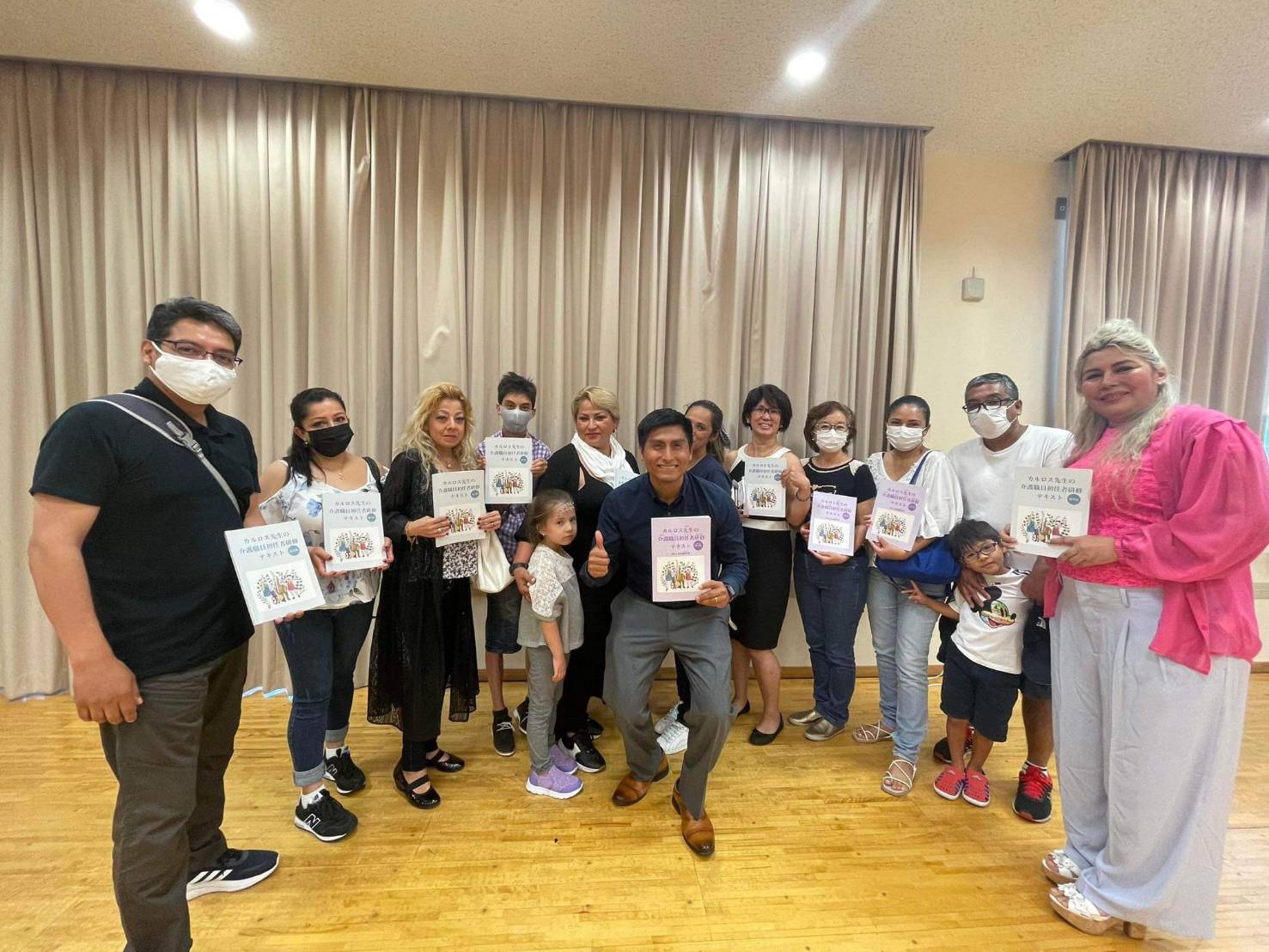
Tell us about how you started attending school part-time while doing care-work during the day.
I was greatly influenced by my mother, who is a nurse. Through her, I realized at a young age that I wanted to work with people. Once, when talking to my parents about what kind of job I should do, they suggested care work to me. From then, I worked in care from 7am until 4pm, and attended school from 5.30pm until 10pm. Care involves working with the elderly a lot, so my Japanese improved more and more. I was completely immersed in Japanese every day, so I think that I was able to soak it in quickly.
Did you find anything else about Japan tough, other than language?
Yes, the food! Japan and Peru share a staple food of rice but we cook rice with garlic and salt to give it more taste. Overall, Japanese and Peruvian rice taste so different! Peruvian cuisine in general could be described as “salty” or “bitter” whereas Japanese cuisine is “salty-sweet”, “bitter-sweet” or just “sweet”! I was surprised by the fact that all the food was sweeter, and for me it was quite hard to get used to. It took me about 5 years, actually.
What was the most memorable time you felt Japan and Peru were culturally different?
A lot of Peruvian people are quite open-minded, and we are kind to and befriend strangers quickly – that is our culture. Strangers go into each other’s fields and eat oranges growing on the trees, and that is normal for us. So when I came to Japan aged 15, knowing nothing of Japanese culture, I spotted an orange tree on my way home from school one day and I took one to eat. The farmer who was growing them and didn’t scold me in the slightest, however he spoke said some things that would be obvious to the Japanese: “You can’t just take other people’s things as you please, you know. It’s a bit of a burden to that person”. I didn’t understand the word “burden” in Japanese at the time, so I later looked it up in the dictionary. I think it was a good opportunity to learn more about Japanese culture.
Mr. Carlos started his career in care at 18. From that point on he started working in various facilities to gain more experience: Specialised Elderly Care Homes, Local Close Contact Services, Assisted Living Facilities for the elderly, Day Care Service – everything. As he worked, Jose obtained the nationally recognised Social Care Work Certification. He then set up a class – “Social Care Work Training for New Foreign Workers” based on the experiences he had at work. In February 2022, Mr. Carlos set up the “Jose Carlos Social Care Work Office”. In the next section, we chat about his experiences working in Social Care.
Social Care Work Training for Foreign Workers~Foster Experts in Social Care by Understanding of Japanese Culture
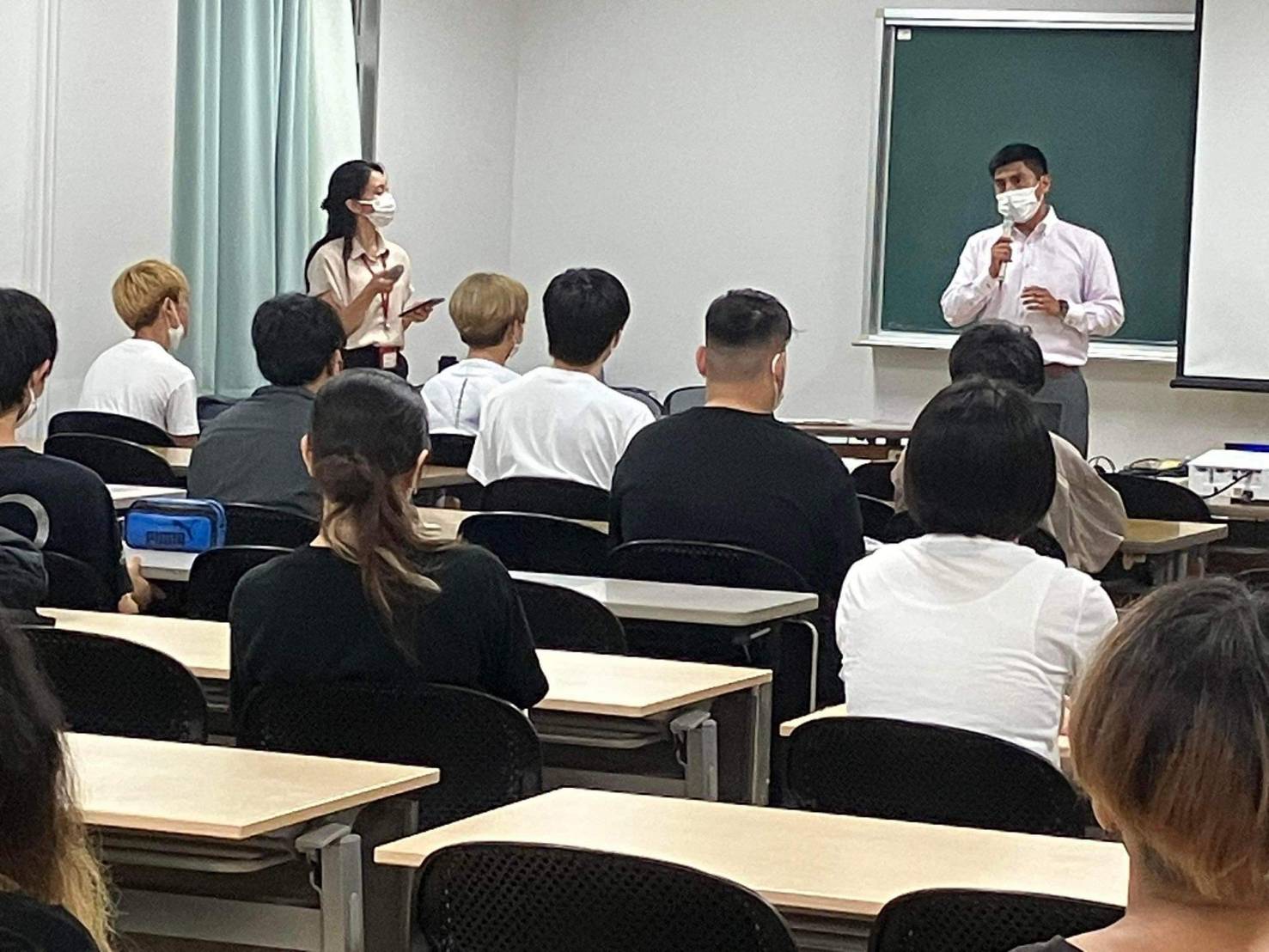
Tell us a bit about your experiences in getting National Certification for Social Care.
You are able to take the National Social Care Work Certification after 3 years of experience. As a foreigner, it would be a great advantage to have nationally recognised certification to be hired as a full time worker in Japan. Understanding the specialized vocabulary was tough, but I persevered and passed.
What did you change the most in order to get the certification?
I worked harder so people would know me as “a person who studied hard”. Thankfully, the study paid off as it was smooth transitioning workplaces to continue up-skilling.
Why did you decide to start teaching Social Care Work Training for New Foreign Workers?
Whenever you ask a foreign person what kind of Care Worker they wish to be, they often reply “I want to help patients by making their time in care light and fun! Like a party everyday!” However when you ask Japanese people the same, they often tell you “I want to work efficiently and precisely. Work done properly is the basis”. The difference between them is glaring, isn’t it? One of my biggest worries in starting a social care class was that I felt if I just taught a normal class, that foreign people might learn what’s in the book but not mesh well with those around them. By teaching care alongside culture, I feel it creates an atmosphere where the students can understand others easily.
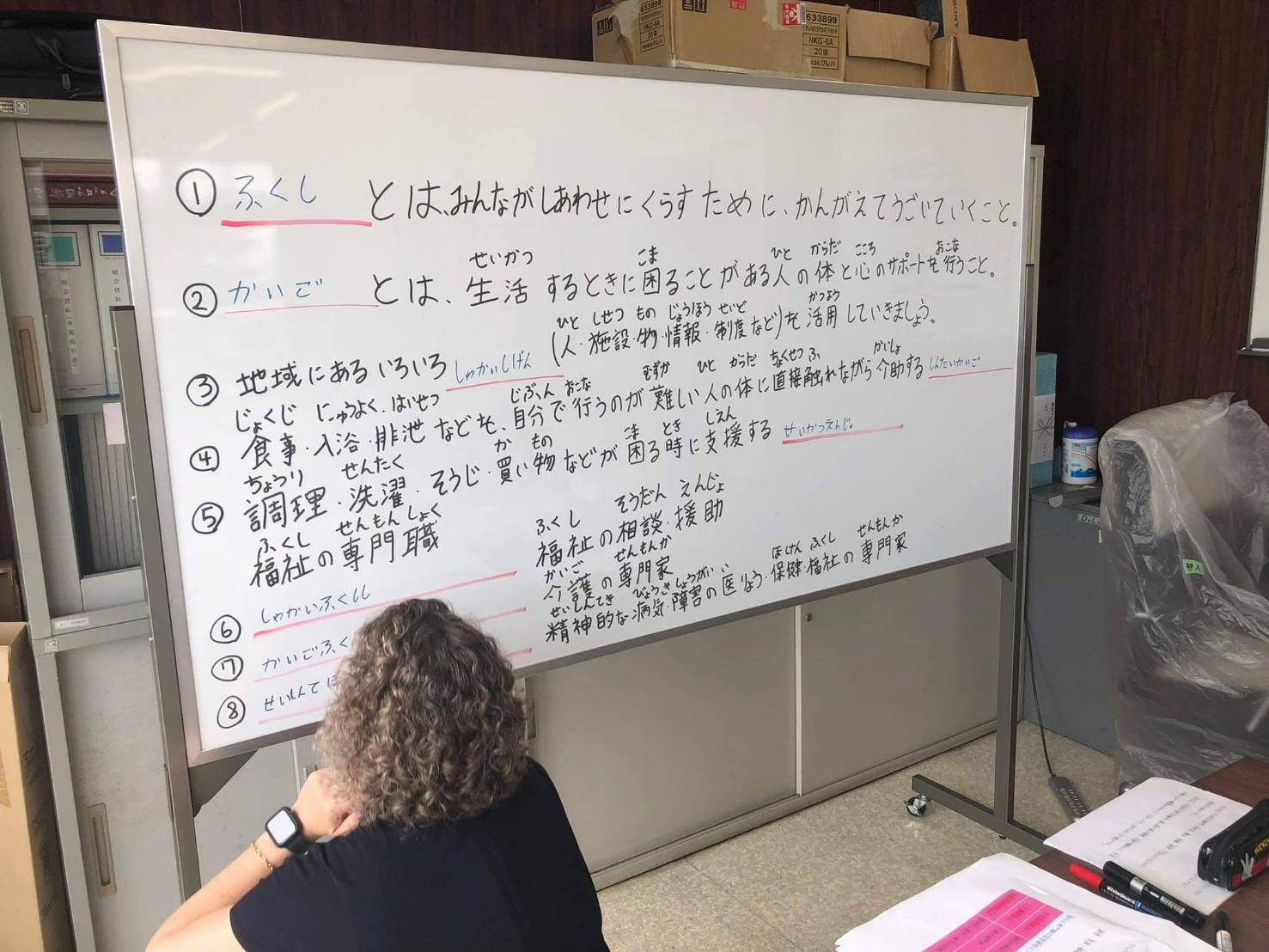
Could you tell us what you specifically do in your work?
Social Care Workers Training Textbooks are full of difficult words. I understand how hard it is to understand and follow those books from personal experience, so I run classes teaching foreign people the concepts using Easy Japanese.
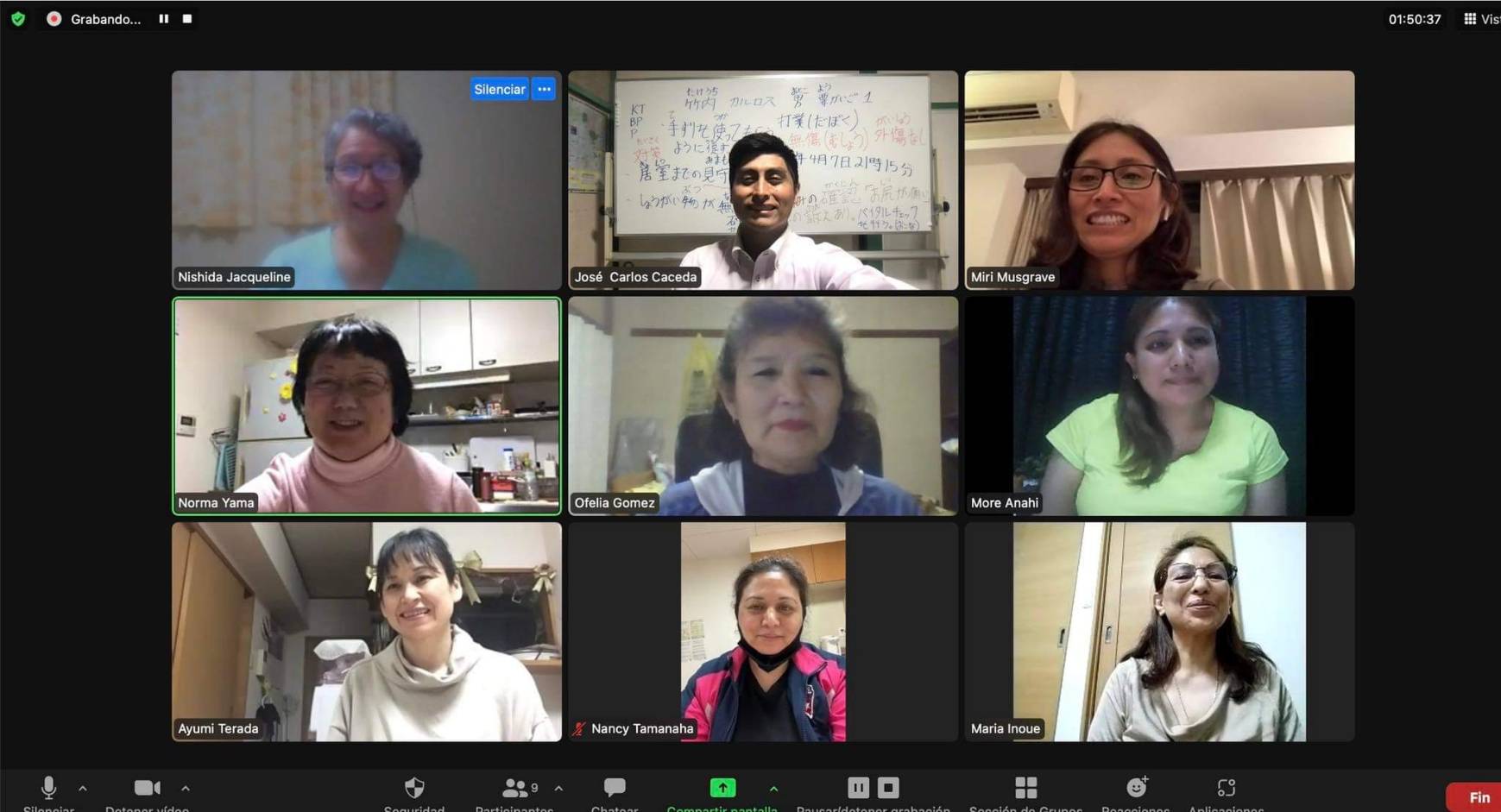
Tell us about what you plan to do in the future
I have been mainly holding online lessons until now, but I’m keeping an eye on the COVID-19 situation and would like to hold in-person classes soon. My job is to help non-Japanese people come to Japan and work. I hope that I can make potential workers feel “I’m so glad that he helped me out”.
Great! We look forward to seeing what you get up to in the future! Thank you for today
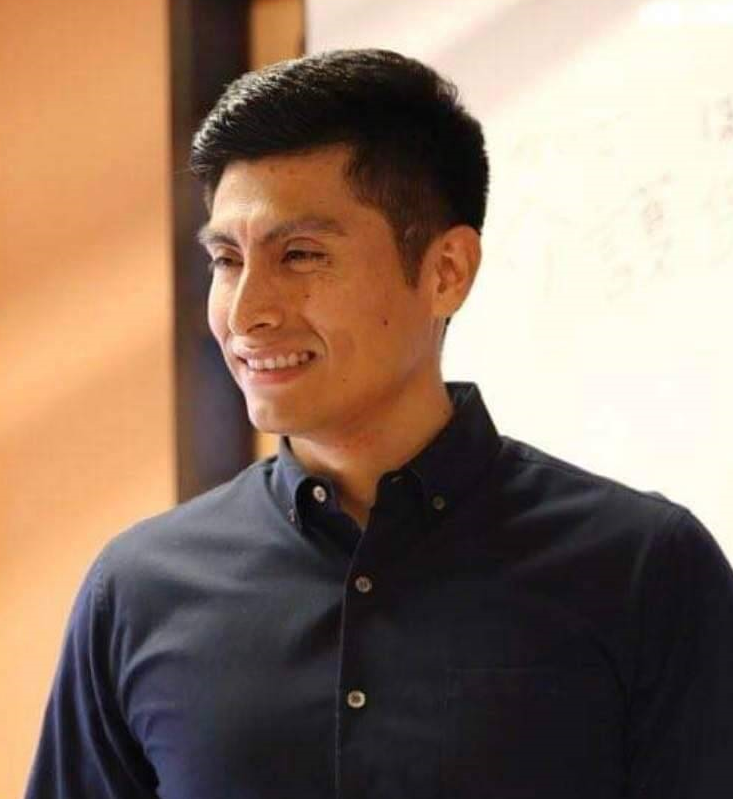
Mr. Jose Carlos
Born in 1991. Came to Japan aged 15. Started his path to care-work inspired by his mother, who works as a nurse and wanting to help others. He achieved the nationally recognised, Social Care Work Certification in 2016. Currently active as a teacher in training sessions for newly appointed care-workers. In February 2022, Mr. Carlos opened a Social Care Workers Office of his own.





